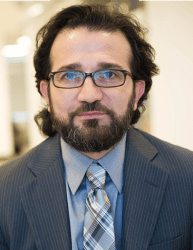As in many postcolonial societies, the dominant education discourse in India has been shaped by colonial influences that have not come to terms with traditional legacies of education. Many of the major pedagogical reforms in India over the last two decades have been focused on improving access to education, but the recent decline in children’s learning levels indicates the need for deeper examination of classroom practices. A complex interplay of culture, social hierarchies, and historical forces have shaped how teachers impart knowledge and how students are perceived and treated in classrooms across the country.
This commentary explores how culture, the existing education ecosystem, and prevalent learning theories—referred to as “Invisible Pedagogical Mindsets”—can reinforce systemic inequalities in the classroom and harm students’ self-confidence and engagement. Additionally, it details how education actors can draw upon positive, locally driven approaches to foster more inclusive and compassionate learning environments to help students reach their full potential.
Dominance of performance pedagogy in Indian classrooms
Teachers in India are immersed in a system of “performance pedagogy,” where both as students and professionals, they experience education as the act of text-based knowledge transmission. This approach is in contrast to “competence pedagogy,” which encourages more child agency in the learning process. The normative position as custodians of knowledge can lead teachers to view learning as a one-sided and standardized, top-down process. Additionally, teacher education programs have often emphasized instructional strategies over classroom interactions and reinforced existing hierarchies of control in teacher-student relationships.
Hierarchical teacher-student relationships can become a significant form of control within performance pedagogy. Teachers are often expected to act as classroom disciplinarians, which causes them to adopt authoritarian practices. To a large extent, this system of control has reinforced the traditional cultural framing of the teacher (guru or expert) being entitled to absolute devotion and obedience from the student (novice).
Both the widespread emphasis on performance pedagogy and teachers’ resistance to building collaborative relationships with students are significant barriers to fostering child agency in the learning process. The performance culture, driven by high-stakes exams, creates a bureaucratic ecosystem of accountability that shapes teaching practices and undermines equity, inclusion, and student well-being. The education ecosystem pressures teachers to finish the syllabus within strict timelines and rewards passing of students to the next grade, potentially diverting focus from the goals of holistic learning. As a result, teachers have little time to implement pedagogical approaches like group work and play, or to critically reflect on these strategies in the context of working with children from marginalized communities.
Moving from deficit thinking to an asset-centered approach
Discrimination against students from marginalized communities, particularly rural poor children, has been widely reported in Indian schools. This discrimination often manifests as criticism, corporal punishment, name-calling, and verbal threats. The combination of education ecosystems that prioritize performance pedagogy and teachers’ biased sociocultural perspectives can negatively impact classroom practices, especially for marginalized students. Teachers may inadvertently ignore the needs of children who do not possess the markers of middle-class privilege, which is indicative of deficit thinking.
Deficit thinking attributes failures of students from vulnerable communities to their internal lack of capabilities, and in turn overlooks the the challenges caused by systemic inequalities. Some teachers view adversity-related struggles as inherent deficits in marginalized children, viewing them as “ineducable” and setting low expectations for those whose parents are illiterate or work in low-status jobs. This perspective, reinforced by a performance-driven teaching culture and high-stakes exams, fosters fear, excludes marginalized students, and harms their self-image and academic performance, overall jeopardizing holistic student learning and thriving.
In order to foster an inclusive and equitable education ecosystem, it is critical to replace deficit thinking with an asset-based approach to education wherein students’ backgrounds, culture, and experiences become their strengths.
Dream a Dream and the SPARKS project: Collaborative pathways to locally relevant pedagogies
While postindependence India has come a long way in making education accessible, the system largely maintains its exclusionary colonial foundation premised on standardization, decontextualization, and elitism. The specific notion of assessment-oriented success has left little room to consider the sociocultural aspects of pedagogy. Dream a Dream’s insights from working with marginalized children indicate that teacher mindsets and pedagogical practices, shaped by prevalent notions of academic success, can harm children’s ability to thrive and attain their full potential. However, many teachers in India challenge the systemic narrative and consistently make compassionate and empathetic pedagogical choices that help children thrive. Unforeseen circumstances like the COVID-19 pandemic revealed that while systemic barriers limit teachers’ pedagogical choices, teachers and education policymakers find ways to challenge the limitations.
To gain a balanced understanding of the role of invisible pedagogical mindsets in shaping classroom practices, Dream a Dream, as part of the SPARKS project, has brought together key actors in Indian education including educators, researchers, and policymakers to discuss the sociocultural influences on pedagogy. The SPARKS research examines how relevant education policies address local education ecosystems, culture, and prevailing learning theories and how these aspects are integrated into pre-service and in-service teacher professional development programs. The project also examines the colonial underpinnings of various normalized pedagogical practices and recognizes that pushback by teachers against these practices might be relevant and necessary. In the long run, the project hopes to draw attention to the sociocultural dimensions of pedagogy and promote localized pedagogical approaches that foster equitable and inclusive classrooms where all children thrive.
The Brookings Institution is committed to quality, independence, and impact.
We are supported by a diverse array of funders. In line with our values and policies, each Brookings publication represents the sole views of its author(s).









Commentary
Examining the factors shaping pedagogical practices in India
The need for locally-led collaborative research
December 17, 2024